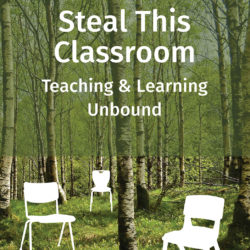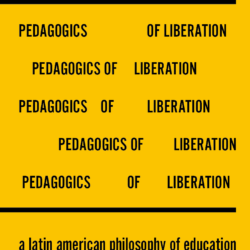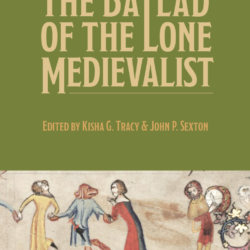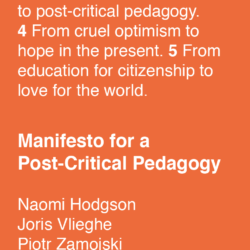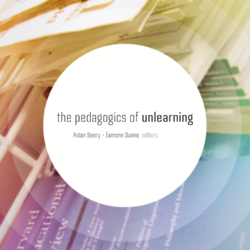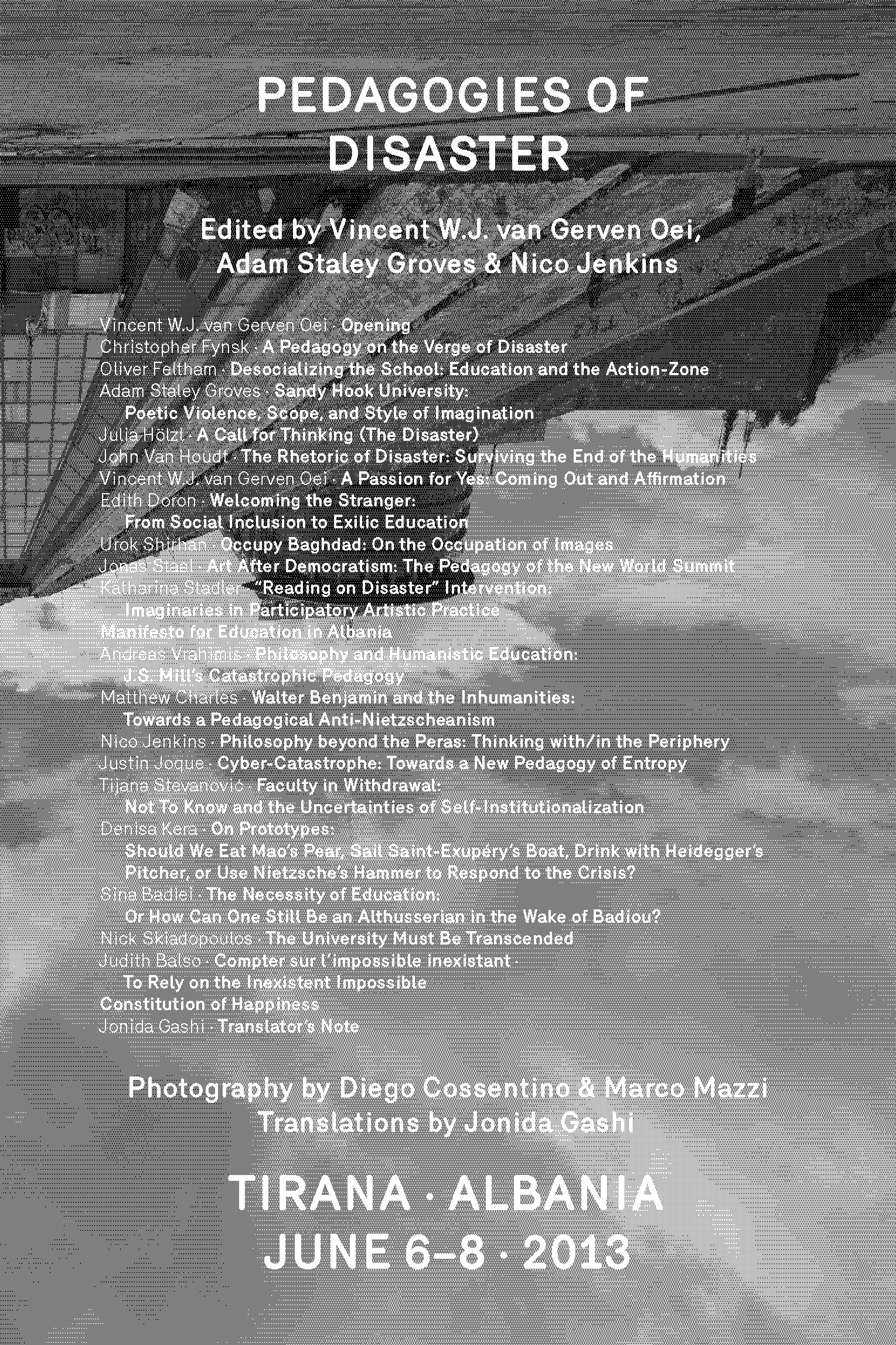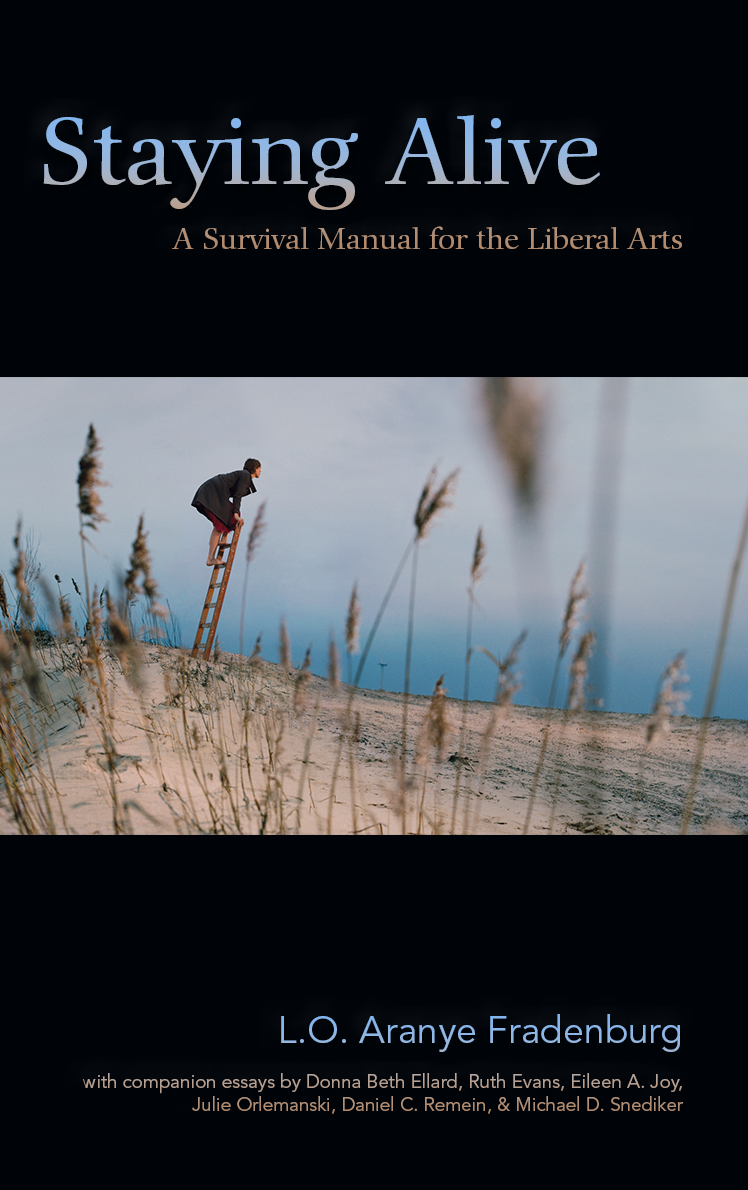Steal This Classroom: Teaching and Learning Unbound
Published: 11/28/2019
Check out the interactive website for Steal This Classroom HERE! In Steal This Classroom: Teaching and Learning Unbound, which comprises a book as well as an interactive website (designed by Alli Crandell), Jody Cohen and Anne Dalke construe “classrooms” as testing grounds, paradoxically boxed-in spaces that cannot keep their promise to enclose, categorize, or name.[…]

